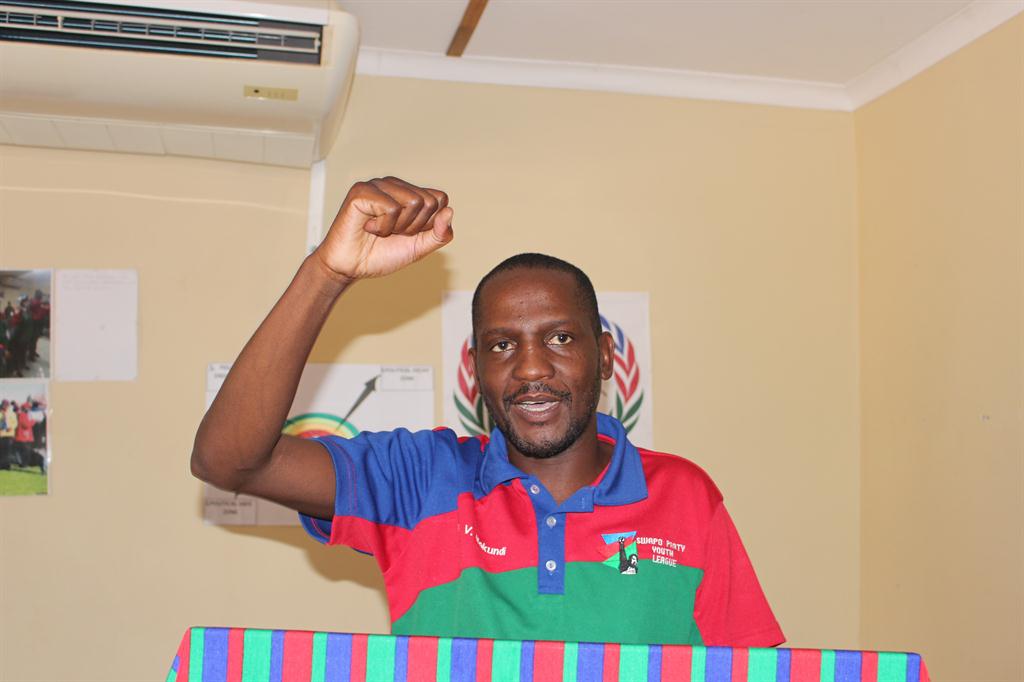Rent-a-darkie must fall – Nekundi
Swapo member of parliament Veikko Nekundi says white-owned South African companies do not appreciate the conducive environment the Namibian government provides and still push white privilege, which sees white employees earning more than their black colleagues.
In his contribution to the Bank of Namibia Bill discussed in parliament this week, Nekundi said there appeared to be no willingness from white-owned companies to genuinely embrace black employees.
Instead, he said, they would “rent a darkie” who had no decision-making powers in management while decisions were made in South Africa.
“When we look at our banking institutions, the top management, even the middle management, it is an eyesore. It is at most just one race of our society. Some of them, I call it rent a darkie, a black CEO, a black manager (sic),” he said.
Nekundi said white-owned companies seemingly did not want to bring their part.
“Some people have died for that cause, yet we are not embarking on a genuine course and they are not genuinely appreciative,” he said.
Nekundi also called on the Employment Equity Commissioner to investigate companies' salary structures to ensure equality.
“How is it possible that a white clerk affords to rent in Eros, but a black clerk cannot afford? I just find it difficult to understand how 29 years down the line you will not find a single white-skinned person renting in Katutura.
“Some are also security guards, some are also nurses and teachers but they are living in mansions and they even drive cars. How do they afford? We know the rental is not less than N$15 000 in those areas, but we know the scales for those professions are less than that.
“Is there some kind of magic they have to sustain them like yet a person of my colour under the same scale do not have that kind of magic?”
Nekundi also believes that white-owned companies direct their social responsibility budgets towards activities that are “predominantly white”.
According to him this must be “controlled”.
Attorney-general Albert Kawana also contributed to the debate, saying the salaries of white and black people must be investigated.
“A white woman would go to the butchery and buy meat, she also needs ingredients for the meat. Then she will go and buy rice and she also needs ingredients for the rice, but the non-white only pours water in his meat and eats it. This is how the difference in salary scales were justified,” said Kawana.
He also believes that the central bank must look into the treatment of black versus white clients, adding that often black clients only know about their obligations to these banks.
“Meanwhile land reform minister Utoni Nujoma suggested that local banks consider offer shareholding for Namibians in these banks.
“They really make a good profit and this will enable us to share the wealth with Namibians,” he said.
JEMIMA BEUKES
In his contribution to the Bank of Namibia Bill discussed in parliament this week, Nekundi said there appeared to be no willingness from white-owned companies to genuinely embrace black employees.
Instead, he said, they would “rent a darkie” who had no decision-making powers in management while decisions were made in South Africa.
“When we look at our banking institutions, the top management, even the middle management, it is an eyesore. It is at most just one race of our society. Some of them, I call it rent a darkie, a black CEO, a black manager (sic),” he said.
Nekundi said white-owned companies seemingly did not want to bring their part.
“Some people have died for that cause, yet we are not embarking on a genuine course and they are not genuinely appreciative,” he said.
Nekundi also called on the Employment Equity Commissioner to investigate companies' salary structures to ensure equality.
“How is it possible that a white clerk affords to rent in Eros, but a black clerk cannot afford? I just find it difficult to understand how 29 years down the line you will not find a single white-skinned person renting in Katutura.
“Some are also security guards, some are also nurses and teachers but they are living in mansions and they even drive cars. How do they afford? We know the rental is not less than N$15 000 in those areas, but we know the scales for those professions are less than that.
“Is there some kind of magic they have to sustain them like yet a person of my colour under the same scale do not have that kind of magic?”
Nekundi also believes that white-owned companies direct their social responsibility budgets towards activities that are “predominantly white”.
According to him this must be “controlled”.
Attorney-general Albert Kawana also contributed to the debate, saying the salaries of white and black people must be investigated.
“A white woman would go to the butchery and buy meat, she also needs ingredients for the meat. Then she will go and buy rice and she also needs ingredients for the rice, but the non-white only pours water in his meat and eats it. This is how the difference in salary scales were justified,” said Kawana.
He also believes that the central bank must look into the treatment of black versus white clients, adding that often black clients only know about their obligations to these banks.
“Meanwhile land reform minister Utoni Nujoma suggested that local banks consider offer shareholding for Namibians in these banks.
“They really make a good profit and this will enable us to share the wealth with Namibians,” he said.
JEMIMA BEUKES





Comments
Namibian Sun
No comments have been left on this article